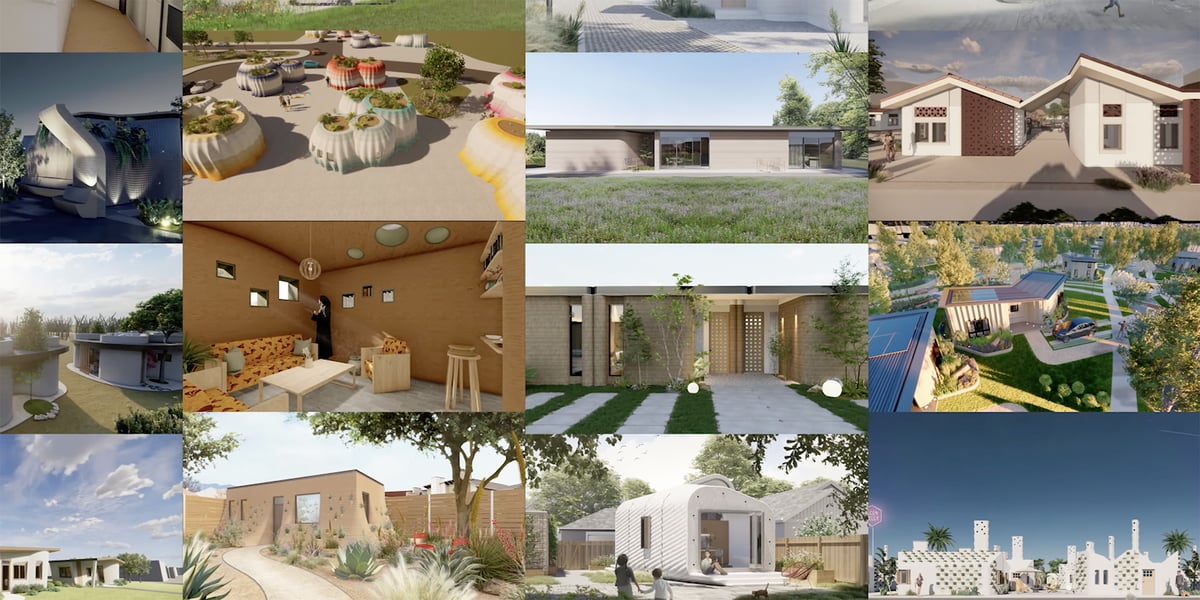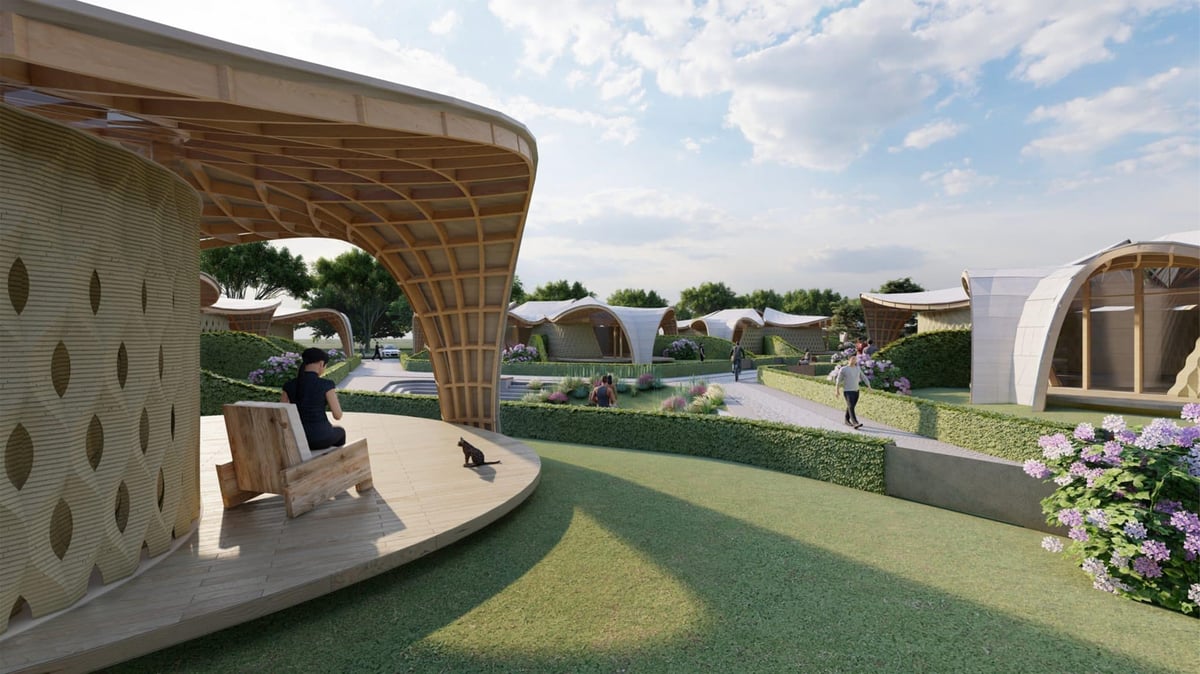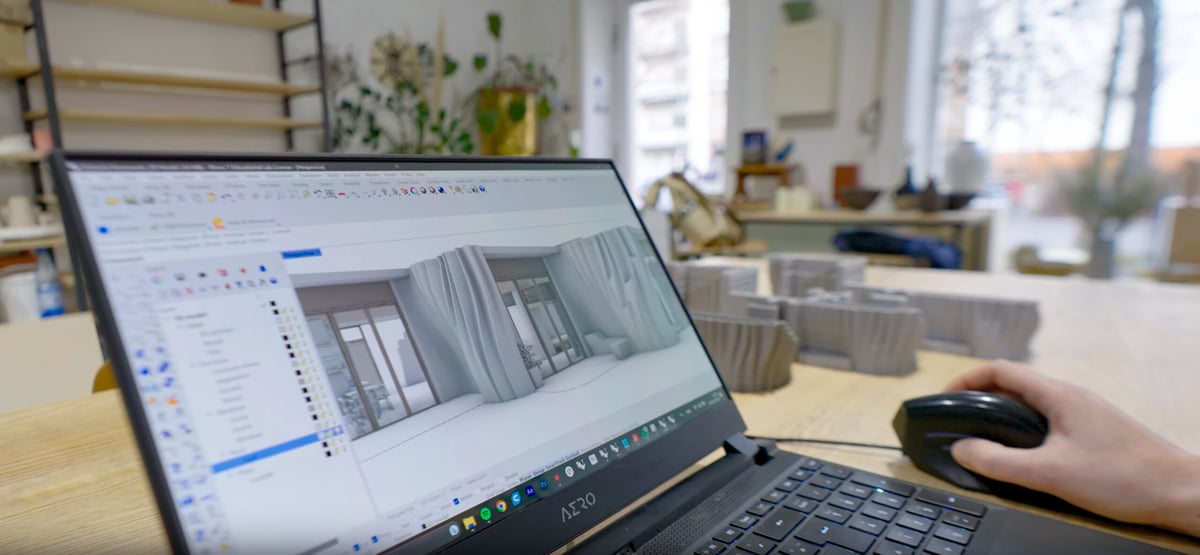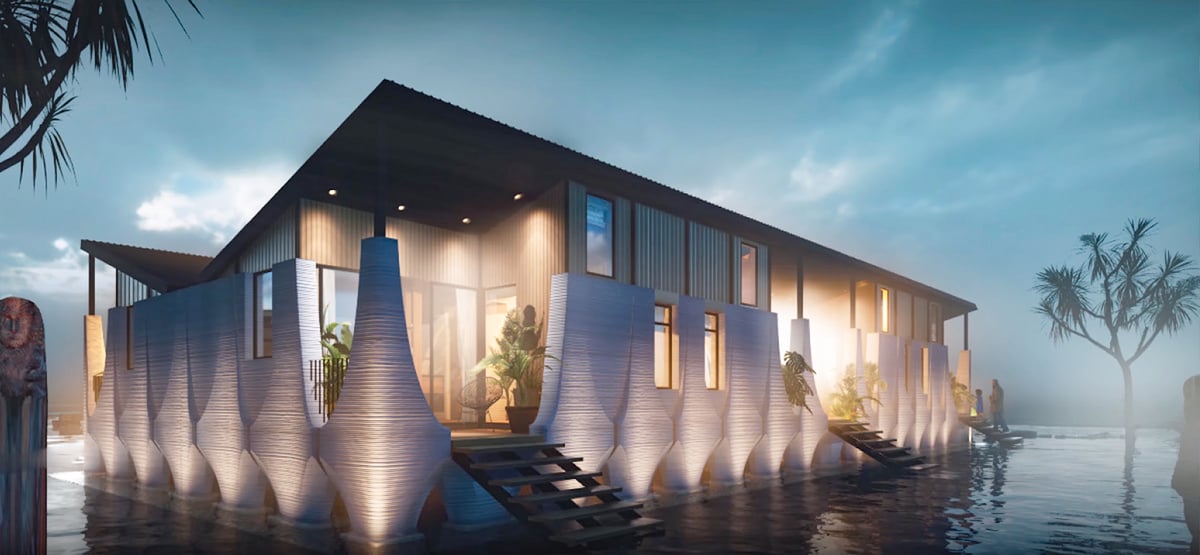The lack of affordable housing is a worldwide issue approaching a crisis level in many regions, yet the construction industry has been slow to modernize, with the exception of one area: construction 3D printing.
Although it is still an emerging technology with less than 1,000 3D printed buildings worldwide, 3D printing – from a cost, sustainability, quality, and speed aspect – offers one of the most promising avenues toward housing humanity.
To showcase this potential, one of the leading 3D printed construction technology companies, Texas-based Icon, invited designers from around the world to reimagine affordable housing and submit plans for homes that could be 3D printed for under $100K.

The six winners and ten honorable mentions presented home and community concepts that showcase the benefits of 3D printed construction. Icon plans to produce some of these winning homes in Texas and worldwide.

The competition, called Initiative99, was sponsored by the Wells Fargo Foundation, which not only contributed the $1M in prize money but also committed an additional $500,000 in grant funding to Austin-based nonprofit Mobile Loaves & Fishes to help bring more of these homes to life at Community First! Village to serve the under-housed community.
One winner, German-based architecture and design studio Beta Realities developed the “Collective Parts” initiative, a design and technology platform that combines scalable 3D printing technologies with a software approach to enable a community of homeowners to participate in a collective planning process.
This scalable community-building solution begins with software to configure the initial building design within set timeframes and budgets. Then, through AI-assisted planning, entire urban neighborhoods are composed, generating engineered multi-family home projects complete with area schedules, floor plans, cost estimates, and embodied carbon calculations. The software then feeds the appropriate information directly to 3D printers on-site for automated construction of on-demand housing.
Another winning submission came from students at The Institute for Advanced Architecture of Catalonia (IAAC) in Spain. The winning project called Casa Fami was developed by 3DPA researchers Vesela Tabakova, Joseph Naguib, and Justin Hanlon. This house is designed for single-parent families and built around inner courtyards, which provide natural light, peaceful views, and safe play areas for children.
“It is a home that – enabled by 3D printing – aims to put comfort, beauty, and even luxury within financial reach of as many families as possible,” the IAAC said in a statement.

Another group of students at IAAC won an honorable mention for their project, “Pocket 3D Printed Neighborhood.” This design solution tackles affordability challenges through the speed of 3D printing technology yet offers mass customization to shape a diverse community that prioritizes pedestrian-friendly spaces and easy access to shared amenities.
The winning home concept from New Zealand-based MTspace Studio was designed for regions susceptible to flooding and would be elevated on pillars to mitigate water damage. More than 60% of New Zealand residents live in areas that will become prone to flooding due to climate change.
“We’ve seen the stagnation of the building industry for decades now,” says competition winner Mona Peters, of MTspace Studio, “and we feel 3D printing can be a real game changer.”

Other winning designs spotlight the resistance to natural disasters, like hurricanes, that 3D printed homes can offer, as well as the speed of construction for refugee housing that is still safe and permanent.
“Icon’s innovative 3D-printed technology paired with these beautiful, imaginative Initiative 99 designs represent a model for the future of affordable housing,” said Darlene Goins, president of the Wells Fargo Foundation.
2024 Initiative99 Winners
Winners in the Student Category
- First prize: Casa Fami by IAAC (Spain)
- Second prize: Juan Felipe Molano (Colombia)
- Third prize: Victoria Roznowski (Germany)
Honorable Mentions in the Student Category
- Fusco-Ayala (USA)
- Canavati+Carneiro+Kazmaz (USA)
- Henry Aldridge (UK)
- LGK (USA)
- Nex-Living by IAAC (Spain)
Winners in the Open Category
- First prize: MTspace Studio (New Zealand)
- Second prize: For Everyday Life (United Kingdom)
- Third prize: Beta Realities (Germany)
Honorable Mentions in the Open Category
- Willowprint (Germany)
- Sameep Padora and Associates (India)
- Guerin Glass Architects (USA)
- JK3D (USA)
- ConCave (various locations)
License: The text of "3D Printed Affordable Housing Under $99K" by All3DP Pro is licensed under a Creative Commons Attribution 4.0 International License.
